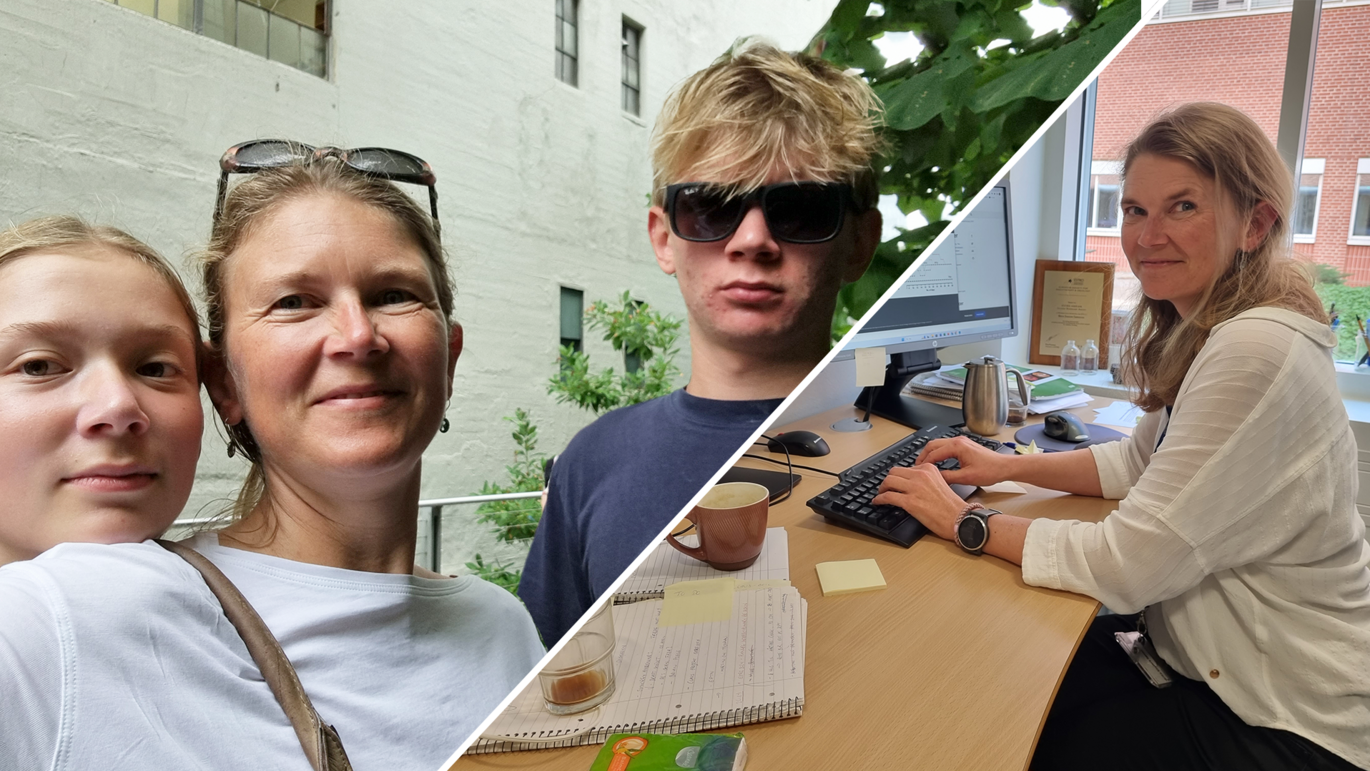Brita Singers Sørensen: "I’m allowed to say no. Even if I’ve already said yes"
The road from PhD to professor is not straight – in fact, it is full of career detours and family bumps. Every month, a researcher talks about how to navigate life as a member of academic staff at Health. Meet Professor Brita Singers Sørensen from the Department of Clinical Medicine.

ABOUT
Name: Brita Singers Sørensen
Age: 45 years
Title and affiliation: Professor at the Department of Clinical Medicine
Field of research: Radiobiology
Place of residence: A house in Hesselballe just outside Hjortshøj north of Aarhus
Family: Lives with her two children aged 14 and 17.
I prioritised my children when they were young. I've travelled a lot in my life as a researcher, but when I've been home, I've always picked up my children early. And management has been supportive and understanding. Back then, there was no time for much else than children and work. It’s different now that my children are older – now they're the ones who aren't at home!
You’re more efficient when you know you have to leave at 15:30. It’s nonsense to think that you get 23 hours more out of people who work 60 hours a week. It makes no sense to compare how many hours you work. It's about how you organise your days and how efficient you are.
I've lowered my ambitions at home. We’ve made sure not to make too many plans on weekends, and I’ve bought a cake from the supermarket whenever it was our turn to bring cake to kindergarten. It’s easier said than done, but setting the bar slightly lower has secured our work-life balance.
I've never planned my career or thought particularly strategically. I’ve seized any opportunities that have arisen, and this has brought me further in my career. I work with radiotherapy, and a lot has happened in our field of research since I came on board. I work with very different, but extremely dedicated and enthusiastic colleagues, who make work fun and motivating. It's kind of like having a hobby.
I’ve only had temporary positions. My professorship is also a fixed-term position. It actually suits me very well, and I'm not stressing about only being able to look 3-4 years ahead. Of course this requires an ‘it’ll be all right’ approach. I’ve received support all the way round, both from management and from my family, and this has helped a lot.
I'm actually a bit of a pleaser. That's why I've made a rule for myself: I’m allowed to say no. Even if I’ve already said yes. This applies both at work and at home. If I’ve agreed to read a review or bring cookie dough to a school event, but I don’t actually have the time for it, I’m allowed to change my mind and say: No, I can't do it anyway. I can recommend anyone to practise saying no.
I cringe when someone says that an assignment would look good on my CV. Or that something is expected of someone in my position. This may be planning courses or organising meetings. Anything that reeks of someone trying to get rid of an assignment or passing the buck. I’ve often said no in such situations.
I was unsure whether it was a good idea to accept a visiting professor position in Rotterdam. I wasn’t sure whether I could work it out in terms of my time. But I'm glad I chose to accept the offer, and that I can plan my trips to Rotterdam in the weeks my children live with me. Professionally, it’s very exciting, and I've built up an invaluable network and met people I'm sure will have a significant impact on my further career.
I don’t expect anyone to work more than 37 hours a week. But work may be at odd hours, and the job requires flexibility. Both at home and at work. We use the proton centre when patients have gone home, and when we do experiments, we can often radiate mice until 23:00. If we’re working late or at weekends, of course we’ll take time off during the week. We’re very keen to make sure that everything adds up, and that there’s time for family. I've met this approach myself from other managers and research coordinators, and I'm very conscious of passing it on.
Early career researchers can feel under pressure to accept a compulsory stay abroad, and my fear is that this may discourage talented people from pursuing an academic career. My family and I were in Vancouver for a year when the children were young. Both my ex-husband and myself had research positions, and being there was actually a gift. But it's also hard work, and it’s not for everyone. It’d be a pity if an international research stay was a non-negotiable requirement or was implicitly expected. We have to remember that the most talented researchers are not necessarily those who work 60 hours a week and go abroad, and it would be a shame to exclude the best ones.
Life as a researcher is super compatible with family life. I’ve heard several people say that you shouldn’t have children during your PhD. That’s the worst advice ever! You can have a family and prioritise it at all stages of your research career. Unlike many other industries, there’s a lot of flexibility, and we can very easily organise our work and working hours ourselves. In fact, I’d say that having a family is a gift in an academic career.